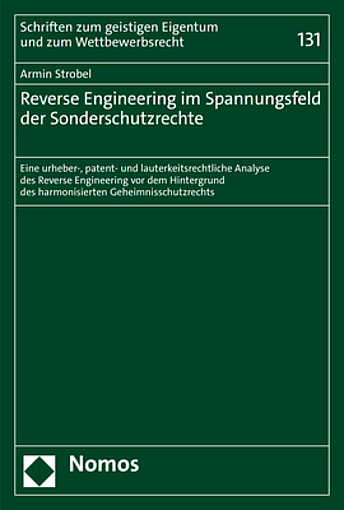englischIn implementation of Directive (EU) 2016/943, Section 3 (1) No. 2 GeschGehG (German Trade Secrets Act) explicitly legalizes reverse engineering for the first time in the history of German trade secrets law. Subject of this thesis is a comprehensive exploration of this new freedom of reverse engineering. To this end, the author develops a definition of reverse engineering that takes into account the reality of economic life. After a practice-oriented interpretation of Section 3 (1) No. 2 GeschGehG, its effects on the entire legal protection of entrepreneurial know-how are examined. The focus is on the effects on copyright, patent and unfair competition law. In this context, the author develops goal-oriented solutions to various unanswered legal questions.
In Umsetzung der Richtlinie (EU) 2016/943 legalisiert das neue deutsche Geheimnisschutzrecht in § 3 Abs. 1 Nr. 2 GeschGehG erstmals ausdrücklich das Phänomen des Reverse Engineering. Gegenstand der Arbeit ist eine umfassende Untersuchung der neuen Reverse Engineering-Freiheit. Hierzu entwickelt der Autor eine der Realität des Wirtschaftslebens Rechnung tragende Definition des Reverse Engineering. Nach einer praxisorientierten Auslegung des § 3 Abs. 1 Nr. 2 GeschGehG werden dessen Auswirkungen auf den gesamten unternehmerischen Know-how-Schutz beleuchtet. Im Mittelpunkt stehen dabei die Folgen für das Urheber-, Patent- und Lauterkeitsrecht. Der Autor entwickelt hierbei zielorientierte Lösungsvorschläge für bisher unbeantwortete Rechtsfragen.


